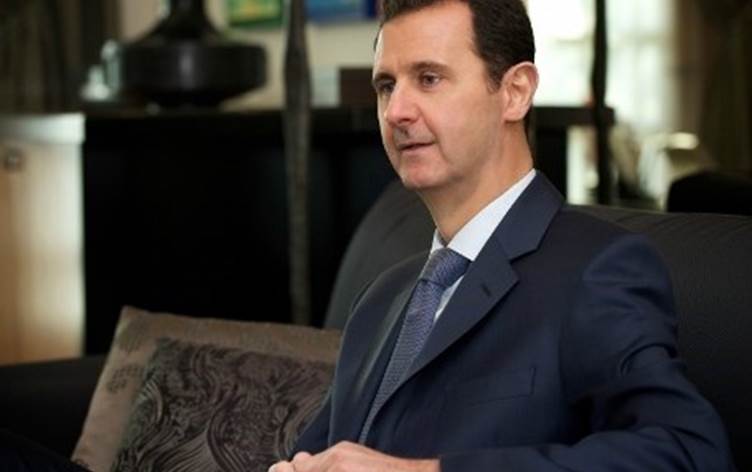LONDON – Embattled President Bashar al-Assad says Kurdish demands in Syria can be discussed after uniting to defeat Islamic extremists, promising he is open to any proposal as long as the country’s territorial integrity remains intact.
“We should unite in order to fight ISIS,” he said in an interview with Russian reporters that was widely published and broadcast by Russian media.
“After we defeat ISIS, al-Nusra and the terrorists (Syrian opposition groups), the Kurdish demands expressed by certain parties can be discussed nationally,” he said.
“There’s no problem with that. We do not have a veto on any demand as long as it is within the framework of Syria’s unity and the unity of the Syrian people and territory,” he said, denying Damascus had any “state policy concerning the Kurds.”
Syria’s Kurds control a self-declared autonomous enclave in the country’s Kurdish regions, or Rojava. They favor a federal system in which different groups can co-exist. That proposal has been opposed by Turkey, which is loath to having an autonomous Syrian enclave on its border, next to its own restive Kurdish-populated areas.
“For us, the Kurds are part of the Syrian fabric,” Assad stated. “So, are they our allies today? No, they are patriotic people,” he said.
“There are Kurds who are integrated fully into society, and I would like to stress that they are not allies at this stage, as some people would like to show,” Assad said, placing a distance with the PYD party that controls Rojava. The PYD has long denied allegations it is secretly supported by Assad’s regime.
Commenting on other issues in the wide-ranging interview, Assad said Damascus was cooperating with Iran and Russia in fighting “terrorism,” but blasted the US-led coalition for its work.
“Also, we are cooperating with Iraq because it faces the same type of terrorism. As for other countries, we have no veto on any country provided that it has the will to fight terrorism and not as they are doing in what is called “the international coalition” led by the United States,” he said.
The United States has opposed Russian cooperation with Assad’s regime and a recent military build-up that includes Russian T-90 tanks, artillery and 200 Russian naval units positioned at an airfield in the port city of Latakia.
US officials accuse Russia of aiming to strengthen its long-time ally, Assad, instead of seeking a transition to a new political leadership.
Assad, meanwhile, accused Turkey, Qatar, Saudi Arabia, Jordan and “some Western countries” of supporting terrorism – a reference to aid or logistical support given to jihadi groups.
“Saudi Arabia, Turkey and Jordan, who pretend to be part of a coalition against terrorism in northern Syria, actually support terrorism in the south, the north and the northwest, virtually in the same regions in which they are supposed to be fighting terrorism,” Assad alleged.
“When they fight against terrorism, we will cooperate with them,” he added.
He was also very critical of European governments for supporting what they see as “moderate” groups in Syria that are fighting against his regime. “All these groups in Syria are extremists,” he warned.
Assad directed his harshest words for President Recep Tayyip Erdogan for “Turkish logistical support” to Islamist groups using Turkey as a springboard for “jihad” in Syria.
He also criticized Western countries for their stance on an ongoing refugee crisis in Europe, where a deluge of Syrians fleeing war has poured in.
The Syrian war, now in its fifth year, has produced the largest refugee crisis in Europe since World War II.




Comments
Rudaw moderates all comments submitted on our website. We welcome comments which are relevant to the article and encourage further discussion about the issues that matter to you. We also welcome constructive criticism about Rudaw.
To be approved for publication, however, your comments must meet our community guidelines.
We will not tolerate the following: profanity, threats, personal attacks, vulgarity, abuse (such as sexism, racism, homophobia or xenophobia), or commercial or personal promotion.
Comments that do not meet our guidelines will be rejected. Comments are not edited – they are either approved or rejected.
Post a comment